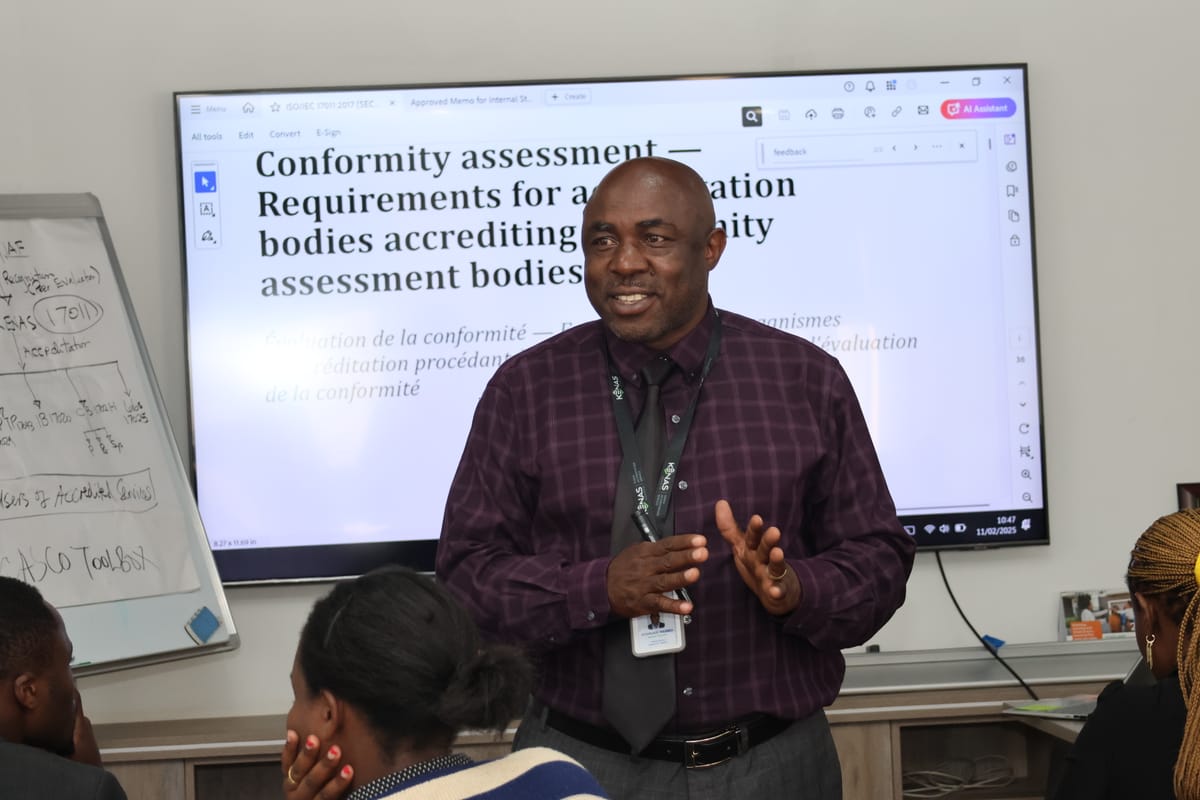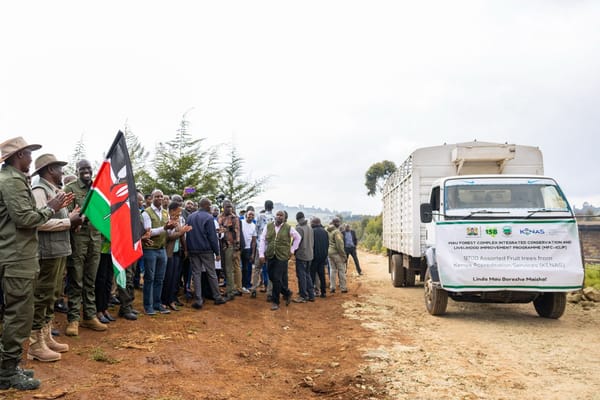Strengthening Accreditation: KENAS Staff Undergo ISO/IEC 17011:2017 Training

Accreditation is crucial in ensuring that conformity assessment bodies (CABs) operate competently, impartially, and consistently. As the National Accreditation Body in Kenya, KENAS continuously enhances its staff’s knowledge and expertise to maintain international recognition. Recently, over 20 KENAS staff members from various departments undertook an intensive training on ISO/IEC 17011:2017. Mr. Stanslaus Masinza, the Manager in charge of Calibration Laboratories at KENAS, facilitated the training.
What is ISO/IEC 17011:2017?
ISO/IEC 17011:2017 is the international standard that specifies the requirements for accreditation bodies assessing and accrediting conformity assessment bodies (CABs). It ensures that accreditation is conducted in an impartial, consistent and competent manner leading to reliability and trust. Accreditation bodies like KENAS must adhere to this standard to maintain trust and recognition in global markets.
An accreditation body evaluates and accredits CABs, including testing and calibration laboratories, inspection bodies, and certification bodies. KENAS, as Kenya’s sole accreditation body, ensures that these entities operate in compliance with international standards.
Mutual Recognition Arrangements (MRA) and Their Benefits
International recognition of accreditation is critical. KENAS is internationally recognized by the International Laboratory Accreditation Cooperation (ILAC) and the International Accreditation Forum (IAF). This ensures that accredited test results and certifications are globally accepted. This principle— “Once tested, accepted everywhere”—eliminates technical barriers to trade, facilitating smoother international transactions.
Accreditation bodies like KENAS enter into Mutual Recognition Arrangements (MRAs) under ILAC and IAF, which ensure that accredited services are recognized across different countries. The benefits of MRAs include:
- Reducing the need for re-testing and re-certification, saving time and costs.
- Enhancing market access for businesses.
- Strengthening confidence in certified products and services.
- Facilitating international trade by harmonizing standards
Why is Competence Important in Accreditation?
Competence is the foundation of accreditation. It guarantees that conformity assessment processes are performed by qualified personnel with the necessary expertise. This enhances the credibility of testing, inspection, and certification results, ensuring that products and services meet regulatory and quality standards. Training staff in ISO/IEC 17011:2017 strengthens their ability to uphold these high standards.
By equipping its staff with comprehensive knowledge of ISO/IEC 17011, KENAS reinforces its position as a globally recognized accreditation body. The training ensures that assessments are performed with the highest level of integrity, competence, and consistency. Additionally, it strengthens KENAS’s ability to support conformity assessment bodies in delivering quality services that drive economic growth and international trade.
Key Contents of ISO/IEC 17011:2017 Training
The training covered the essential requirements of ISO/IEC 17011:2017, equipping KENAS staff with in-depth knowledge of:
1. General Requirements
- Ensuring impartiality and independence in accreditation activities.
2. Structural Requirements
- Governance and organizational structure of an accreditation body.
3. Resource Requirements
- Competence of personnel.
- Management of personnel involved in accreditation.
- Personnel records.
- Outsourcing of activities and maintaining control over them.
4. Process Requirements
- Handling applications for accreditation.
- Preparation and conduct of assessments.
- Managing the accreditation cycle, including extensions, suspensions, withdrawals, and reductions of accreditation scope.
- Addressing complaints and appeals.
5. Information Requirements
- Managing confidential information and ensuring transparency for publicly available information.
6. Management System Requirements
- Implementing a robust management system.
- Document control and record-keeping.
- Identifying and addressing non-conformities and implementing corrective actions.
- Conducting internal audits and continuous improvement.
- Management reviews to assess performance and compliance.
The Impact of the Training on KENAS
The commitment to continuous learning and development is at the core of KENAS’s mission to uphold global accreditation standards. This training is yet another step in ensuring that Kenya’s accreditation framework aligns with international best practices, benefiting businesses, regulators, and consumers alike.



